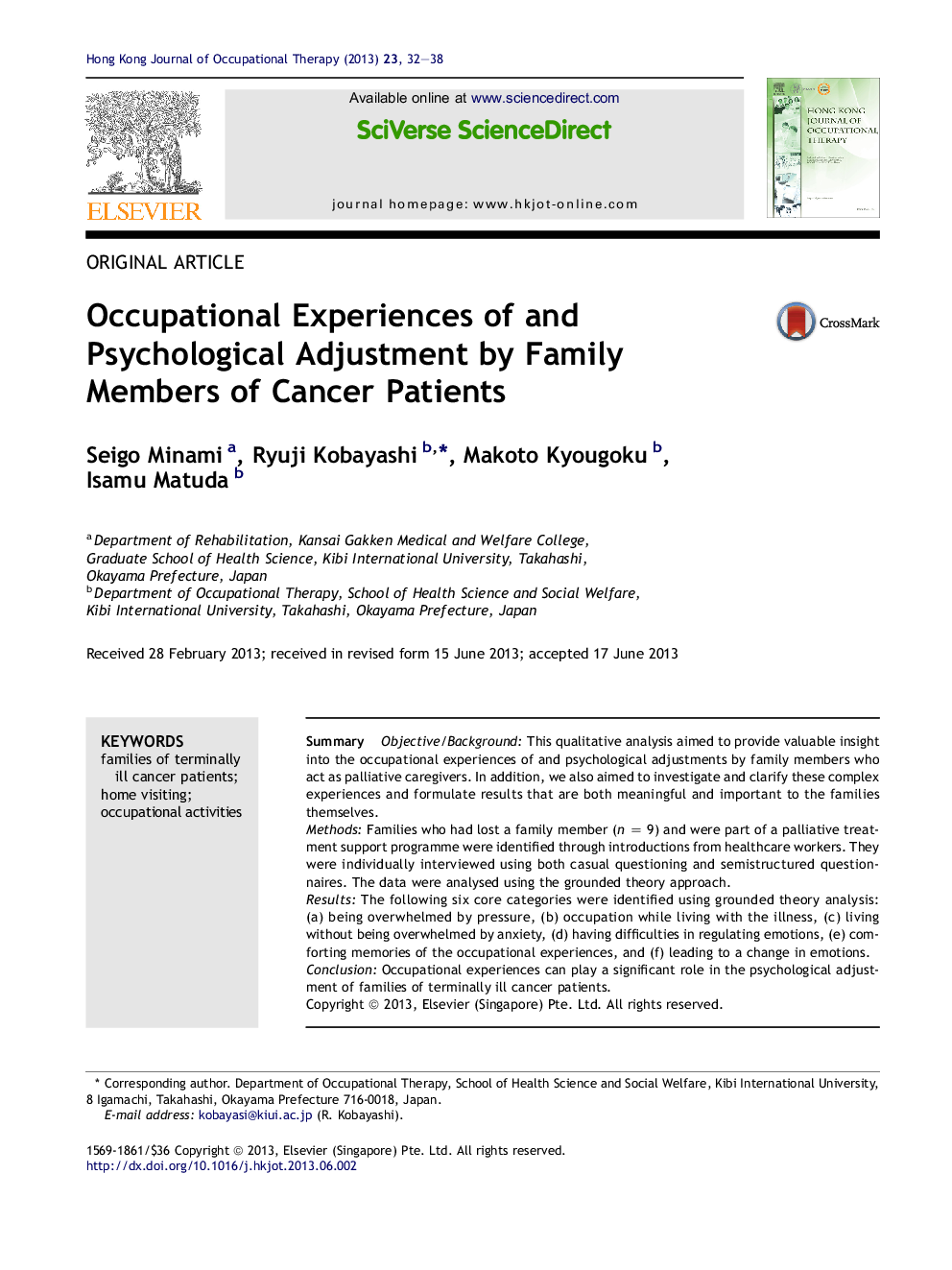| کد مقاله | کد نشریه | سال انتشار | مقاله انگلیسی | نسخه تمام متن |
|---|---|---|---|---|
| 2697569 | 1564908 | 2013 | 7 صفحه PDF | دانلود رایگان |

SummaryObjective/BackgroundThis qualitative analysis aimed to provide valuable insight into the occupational experiences of and psychological adjustments by family members who act as palliative caregivers. In addition, we also aimed to investigate and clarify these complex experiences and formulate results that are both meaningful and important to the families themselves.MethodsFamilies who had lost a family member (n = 9) and were part of a palliative treatment support programme were identified through introductions from healthcare workers. They were individually interviewed using both casual questioning and semistructured questionnaires. The data were analysed using the grounded theory approach.ResultsThe following six core categories were identified using grounded theory analysis: (a) being overwhelmed by pressure, (b) occupation while living with the illness, (c) living without being overwhelmed by anxiety, (d) having difficulties in regulating emotions, (e) comforting memories of the occupational experiences, and (f) leading to a change in emotions.ConclusionOccupational experiences can play a significant role in the psychological adjustment of families of terminally ill cancer patients.
Journal: Hong Kong Journal of Occupational Therapy - Volume 23, Issue 1, June 2013, Pages 32–38